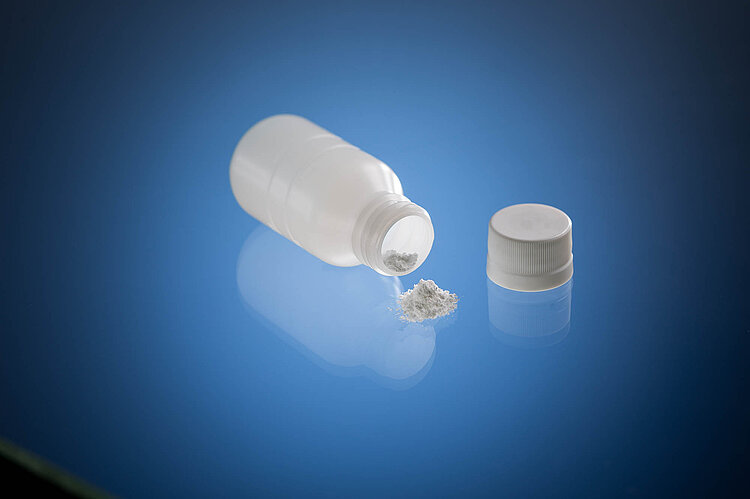Commonly called reconstitutable oral suspensions, dry syrups are a mix of powders to which water must be added at the time of their administration. They allow to safely distribute medicines which would not be stable in their liquid state. Compared to their equivalent liquid form, powders are lightweight, allowing easier and more cost-effective transportation.
This kind of products are typically intended for paediatric use.

Handling different types of powders, having different features
Dosing consistent volumes of powders as well as smaller volumes
Dosing a whole range of volumes into bottles whilst maintaining a high accuracy
Handling multiple bottle formats and closures
Avoiding product waste
Preventing the machine from dosing when the container is not in position (no bottle no filling)
Independent motorisation of the dosing disc, allowing for multiple dosages into the same container
Highly-reliable vacuum-pressure dosing disc system
Easy and tool-less transport size parts changeover
Process steps monitoring

Reliability and ergonomics for highly efficient dry syrups production lines.